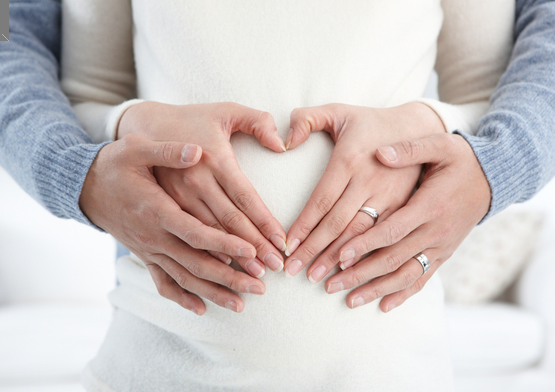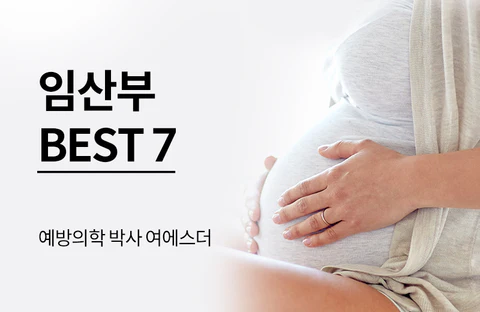Pregnant women BEST 7
01 Multivitamin
02 Folic Acid
03 Calcium
04 Iron
05 Vitamin D
06 Omega-3
07 Probiotics

The most important cause of disease outbreaks... Intrauterine environment
One of the important causes of the occurrence of the disease is the intrauterine environment. The environment during which the fertilized egg stays in the mother's womb for nine months is important. In particular, the first trimester (within 12~15 weeks) when major organs are formed is the most important. Diseases such as high blood pressure, heart disease, diabetes and cancer are also greatly influenced by the intrauterine environment at this time.
In fact, there is a case in the United States that has been linked to the uterine environment and heart disease
Newsweek, an American newsweekly, emphasized the importance of the intrauterine environment in a cover story. British researchers examined more than 13,000 newborns born in the early 1900s and found that maternal malnutrition increased the risk of heart disease by 50 percent for babies who weighed less than 2.5 kilograms at birth. The reason for this is that malnourished fetuses are born with small livers. When the liver is small, its ability to break down cholesterol decreases, leading to hyperlipidemia, which leads to increased heart disease.
Diabetes cases that also apply to our country!
This also applies to our country. Diabetes is a prime example. Experts believe that today's diabetic patients in their 60s were conceived during the Korean War and were born with immature pancreas due to poor nutrition and poor intrauterine conditions. The problem is that as they go through a period of rapid growth, they suddenly experience a state of overnutrition and become overloaded with high blood sugar. As a result, the pancreas became exhausted, leading to diabetes.
Intrauterine Environment and Gene Deletion
Another reason why the intrauterine environment is important is because of gene defects. Gene defect does not mean serious genetic damage or genetic disease that is passed on to offspring like mutations, but is recognized as one of the genetic diversity and is included in the normal range. Although it is not passed down from generation to generation, it is easy to understand if you think of it as a faulty combination of genes that can affect the health of the time.
When pregnant, you need to pay special attention to your nutrition
The problem is that even if the father's sperm and the mother's egg are very good, if the intrauterine environment is poor, an error called a gene defect can occur during the gene replication process. Children born with these gene defects are more than 10 times more likely to develop leukemia or breast cancer in the future. Therefore, when you are pregnant, it is important to pay special attention to your nutrition intake and to ensure that you are getting the right amount of nutrients you need.
01
First and foremost, balancing
Multivitamins
For pregnant women, the recommended intake is set higher than the general population in many nutrients. This means that the fetus needs a lot of energy and nutrients to grow and stay pregnant. A lack of minerals such as zinc also adversely affects the maintenance of pregnancy. Therefore, it is important to balance the nutrients with a multivitamin first. When choosing a multivitamin, pregnant women should check the vitamin A content of the product they are taking. Excessive intake of vitamin A is associated with the risk of fetal malformations, so no more than 5,000 IU per day should be consumed.]
02
nutrients that a pregnant woman should pay the most attention to,
Folic acid
It is the nutrient that pregnant women should pay the most attention to. This is because if there is a lack of folic acid in the first 4~5 weeks after pregnancy, there is a possibility that a baby with anencephaly or spina bifida will be born due to a neural tube defect.
From pregnancy preparation to folic acid, folic acid
The U.S. Centers for Disease Control (CDC) and the Korean Dietetic Association recommend that women of childbearing age consume 400 μg of folic acid daily. If you are a woman who is preparing to become pregnant, it is recommended to take 400~1,000μg of folic acid preparation at least 1 month before pregnancy.Women who have a history of giving birth to a baby with neural tube defects, women who are taking medication for insulin-dependent diabetes or convulsive diseases, or women who smoke or drink alcohol frequently should take folic acid supplements of 4~5mg in the early stages of pregnancy under the supervision of a doctor and 400~1,000μg after the 12th week of pregnancy.
03
Supplement with food or preparations,
calcium
In the early stages of pregnancy when morning sickness is severe, it is not easy to take calcium supplements, so it is recommended to supplement calcium in the form of silken tofu, milk, or yogurt. Once morning sickness in the early stages of pregnancy subsides, you should get enough calcium. During pregnancy, it is recommended to choose calcium citrate preparations if possible. During pregnancy, you may suffer from digestive problems or constipation, as calcium carbonate preparations are more likely to cause digestive problems or constipation. If a mother can eat 1 glass of yogurt or milk every day, it is recommended to take 1 calcium pill, and if a mother cannot drink dairy products due to lactose intolerance, it is recommended to take 2 calcium pills in the morning and evening.
04
iron,
Why it's especially necessary in the second trimester
Up to the fourth month of pregnancy, the need for iron is low, so there is no need to take iron supplements. During this time, there is morning sickness, and taking iron pills makes vomiting worse. After the second trimester of pregnancy, iron intake is necessary, and even if there are no symptoms of anemia during pregnancy, iron nutrition is especially important because the risk of premature birth or stillbirth increases if the pregnant woman's body does not have enough iron due to iron deficiency.
Iron nutrition, let's do this
If you're a healthy pregnant woman, you can get 30 mg of iron per day. If you are pregnant with multiple fetuses, you need 60~100mg of iron, and if you have anemia, you need 200mg of iron. Iron is best taken on an empty stomach with vitamin C. If you feel uncomfortable on an empty stomach, you can eat a light snack such as a biscuit and then take it with orange juice for better absorption. I wish you knew that if you take iron supplements, your stools will be black.
05
Let's Check My Vitamin D Levels
Surprisingly, rickets is sometimes observed in recent babies. This is related to the level of vitamin D in the blood of pregnant women. Vitamin D is also associated with the immune system, so if possible, measure the level of vitamin D in your blood during a prenatal test. Pregnant women should get at least 600 IU of vitamin D per day. To maintain a sufficient blood level of 30 ng/ml, it is recommended to consume at least 1,500 IU of vitamin D.
06
For fetal brain growth...
Omega-3!
The second trimester is a time of fetal brain growth and development. There is also an interesting paper that says that if you consume a sufficient amount of omega-3 during pregnancy, the IQ of the newborn baby will increase by 4~8. Although blue fish contains a lot of omega-3s, there is a problem with heavy metal contamination, so it is recommended to take omega-3s in the form of supplements that contain enough DHA during pregnancy. Typical omega-3s contain a 3-to-2 ratio of EPA to DHA, just like in fish. During pregnancy, it is recommended to consume plant-based omega-3s that are high in DHA and free of heavy metals.
07
The first gift from a mother to her baby,
Probiotics
The first gift a mother gives her baby is probiotics. If the amount of beneficial bacteria in a pregnant woman's vagina is low, it is difficult to give the baby enough good bacteria during delivery. Therefore, it is recommended to take probiotic preparations during pregnancy. If you have a C-section, you can mix the formula with probiotics. Probiotics can also help reduce the occurrence of vaginismus during pregnancy. This is because the more good bacteria in the stool that comes out of the intestines, the more beneficial bacteria survive in a woman's vagina. Therefore, it is recommended to take probiotic preparations regularly from before pregnancy to after childbirth.




